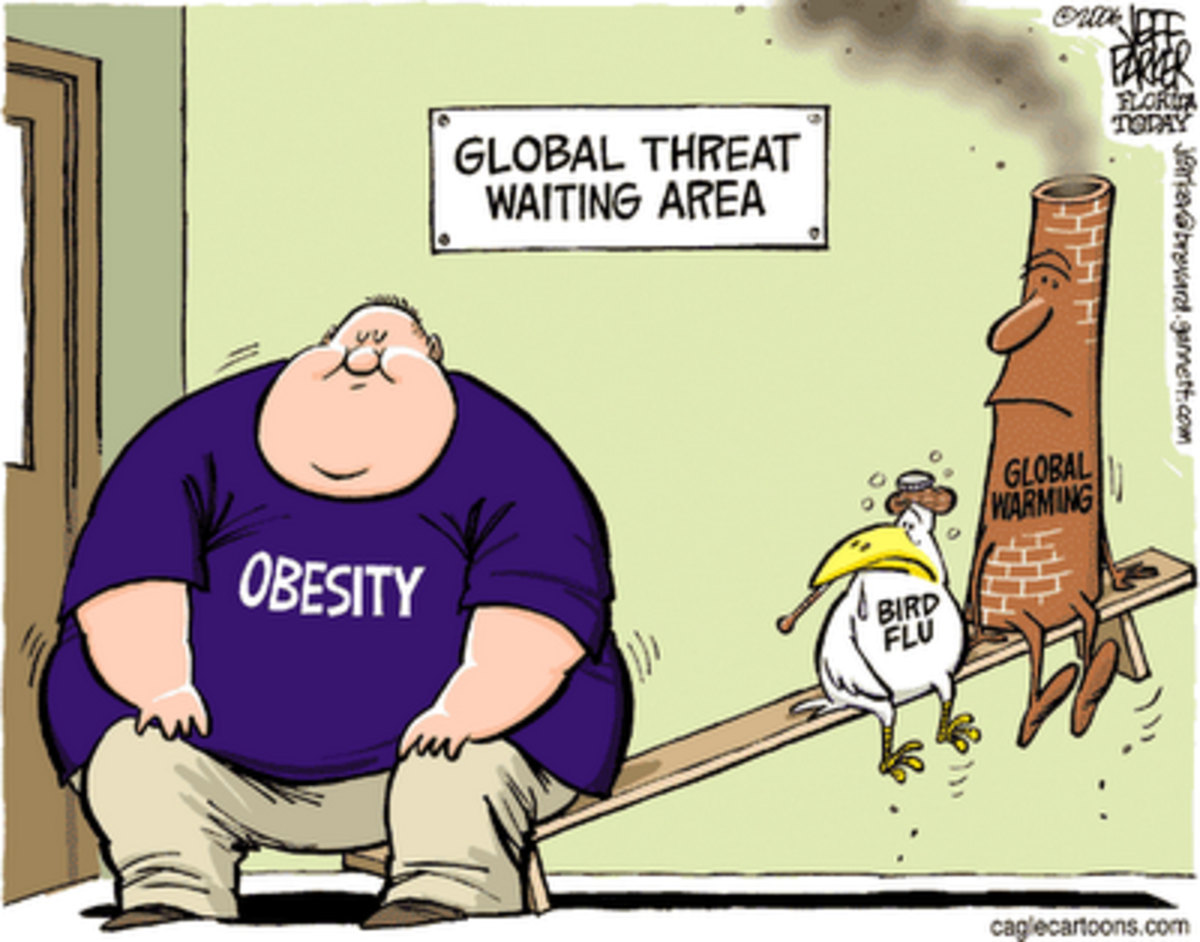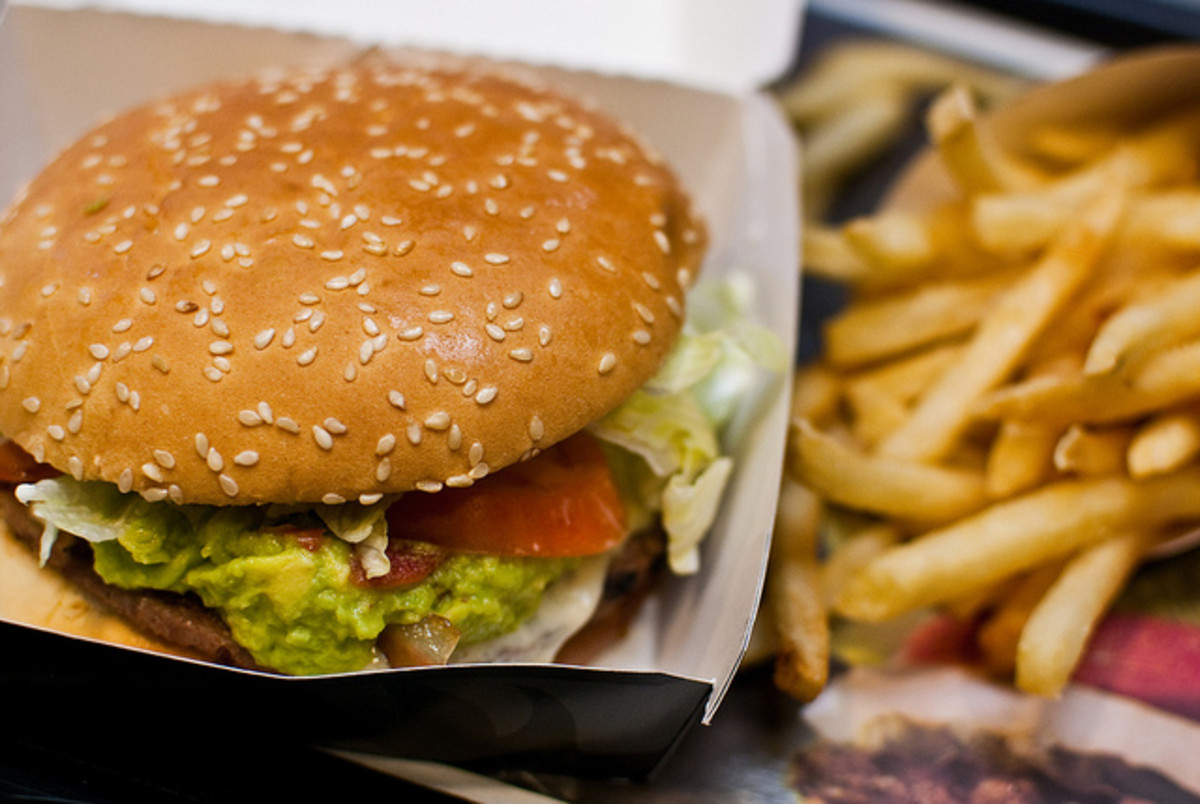The Obesity Epidemic: A Weighty Problem.
What is needed is understanding and compassion, not judgement or accusation. People who happen to be overweight or obese are very often judged in a negative light by those who are not similarly afflicted. The more ignorant critics even go as far as to assume that obesity is simply a matter of personal greediness and that all an obese person has to do is to go on a diet and all will be well. In some cases, that may be true. But such critics are blind to the causes of obesity. Obese people often see themselves as caught in a trap from which they cannot escape, no matter what they do. Feelings of entrapment and disempowerment are exacerbated by images of the “ideal” or “attractive” body, usually disseminated by the advertising departments of fashion manufacturers. Obesity is increasing regarded as a social problem and the result is that obese people feel judged, criticised and accused.
There was a time when largeness of size was associated with love of life and good humour...

No judgements here.
Just to make my personal position clear: if a person is happy with his or her body then so am I. I do not see it as my business to judge the appearances of other people or tell them what to do or how to live their lives. If they are happy then so am I. But many, perhaps most, are not happy and want to change. Herein lies the problem.
Video title: "Fat People are Gross". Message: Double standards are gross. (Warning: contains some swearing)
Some alarming statistics.
In the United Kingdom, according to the latest figures from the British Health and Social Care Information Centre, roughly a quarter of the adult population are obese. In the USA, the figure is roughly a third of the adult population. The consequences of this can be divided into two main categories. The first category is economic. Figures from the Centers for Disease Control and Prevention estimate that the cost of treatments for obesity in the USA is in the region of $150 – 200 billion a year. In the UK, the cost of obesity treatments to the NHS is in the region of £4.2 billion. Like John Lennon, I don’t care too much for money so I'm happy to leave those figures to speak for themselves.
The second category is what one might call human consequences. To state the obvious first, being very overweight has a negative impact on health. Obesity is the cause of a whole range of medical conditions, ranging from heart disease, high blood pressure, diabetes and stroke through to conditions such as osteoarthritis and apnoea. Low energy levels, low libido, a feeling of a lack of well-being and the experience of illness can, in turn, lead to psychological problems such as low self esteem, low self-confidence, negative body image and depression. Relationships may suffer. Children may be badly affected if one or both parents are struggling to cope with a physical condition.
Occasional treat or source of comfort and solace?

The cause of, and cure for, obesity: simplistic version.
The cause of obesity is taking too much energy into the body via food. This happens either through eating too much of everything or through eating mainly the “wrong” sorts of food – those rich in carbohydrates, fat and sugar. The cure is to eat fewer carbs and less fat and sugar. And to do more exercise. Simple!
The real causes of obesity.
I think we should be asking why it is that people are increasingly eating too much carbohydrate, fat and sugar. And the reasons aren’t that simple. Some people seek solace from personal unhappiness by eating “comfort food”. Some people have a low frustration tolerance and find it difficult, if not impossible, not only to “draw the line” but even to know there the “line” is. Some people, I imagine a minority, have physiological conditions which make them more prone to obesity than others. But can this really account for the astonishing increase in obesity which we have seen in recent decades, an increase which shows no sign of slowing? The answer has to be no.
Let’s step back a pace or two. Whatever the spiritual or intellectual nature of mankind, the fact remains that we are creatures of flesh and blood, like all the other animals around us, and that food is not only essential for our well-being, it is also necessary for our survival. As far as our bodies are concerned, our central purpose is to procure, prepare and eat food.
A child's ration book from the period of the 2nd World War (UK)

Food is no longer the main purpose of life.
Here, in England, there are many members of the older generation who remember food rationing, which took place during and after the Second World War. Food was important because you could not take it for granted. But now, in what we call the developed world, food supply is taken for granted. If you want food you simply go and buy it.
This is a generalization but I’ll offer it anyway: food is no longer a fundamental element in our lives. It is no longer why we get up and go to work. What is essential now is the acquisition of money, not food. People work ever longer and more irregular hours in order to find the money to put a roof over their heads rather than to put bread and butter on the table. Money, not nourishment, is seen as the source of happiness and well-being. Food is now both a luxury and a nuisance. Yes, we love eating out in swanky restaurants but the business of feeding ourselves and our families after an exhausting day at work is sometimes more than we have the personal resources to deal with. Result: we turn to fast-food and easy-to-prepare processed food and land ourselves with an obesity epidemic.
Supersize Me in 7 minutes - selected scenes from Morgan Spurlock's extraordinary film.
Children's lives have also changed.
For people below working age, the situation has also changed beyond recognition. Here, in England, children used to play outside, unsupervised. Now, parents are rightly concerned about ever increasing road traffic and the real danger of an inattentive kid getting run over. Parents are out at work and not at home if something should happen while a child is out playing. And, anyway, why should kids bother to go out when they have laptops, tablets, smartphones and a whole plethora of things they can prod with their fingers and stare at? Result: children grow up without exercise.
The real cures for obesity.
Yes – it still involves eating fewer carbs, less fat and less sugar and / or getting more exercise. But any hope of a widespread “cure” has to take account of the broader social picture. Life has changed. It keeps changing. Time is a one-way street and yesterday will not come again. But before saying any more, let me just offer a word of warning: “magic-wand” solutions are probably best avoided.
Fast food, anyone?

Magic Wand Solution # 1: Crash diets.
Crash diets are almost always unbalanced. Important nutrients are omitted. The immune system can be weakened. The heart can be put under duress. Energy levels can plummet. And, the most serious problem, crash diets only represent a short-term solution. You cannot live on a crash-diet for the rest of your life, unless you want the rest of your life to be short. Yoyo dieting – rapid weight loss followed by rapid weigh regain – achieves nothing.
Sorry - you've still got to change your diet!

Magic Wand Solution # 2: Surgery, both actual and “virtual”.
Gastric band surgery will almost certainly achieve some weight loss, at least in the short term. But medical opinion seems unanimous in that permanent weight loss following surgery still depends on permanent and lasting alterations to diet. Following surgery, even if you persist in eating too much of the wrong sorts of food you will probably still lose weight, but that weight loss might not be enough to lift you out of obesity. For a more detailed discussion of this topic, see this article on my website. (Please note: this is the article page of my personal website. This site offers no products for sale, carries no advertising whatsoever and therefore contains no means of on-line payment. I direct you there for further information only).
Here in the UK there was a trend a few years ago in favour of “virtual gastric band” treatments under hypnosis. These treatments were usually extremely expensive and, in my personal experience, largely ineffective. In recent years, demand for this type of treatment seems to have fallen, along with the price. In the minority of cases where this type of treatment is effective the same applies as to gastric band surgery. Changes still need to be made to diet and exercise routine. Again, for more information on this see this article on my website, and above comment at the end of previous paragraph.
The way forward...
Change is always possible. There is always hope. At a personal level, probably the most important thing a person can do is to understand fully why he or she is in a condition of obesity. People often tell me that they cannot understand why they are obese. They say that they eat so little. Further enquiry usually reveals that this is not the case. Openness and honesty with oneself is the first step. When you really know and understand what changes need to be made then you can set about making them. This really is the most important first step. By understanding how you got to where you are you will understand how to move beyond it.
But what if you’re too busy to cook or to give any serious thought to the business of cooking and healthy eating? Here we have the most intractable problem and one which, as suggested above, is probably the root cause of the modern obesity epidemic. And, to be honest, I don’t really know what the solution is. But – here’s an idea…
A business opportunity?
If so many people no longer have the time to think about the purchasing and preparation of decent healthy food and feel they have to turn to unhealthy (and usually expensive) options, surely there is some sort of business opportunity here? Maybe it could be tried in a small way. Offer a basic, healthy food menu, prepare the food and deliver it at a fixed time. The more customers you have, the more you will be able to buy in bulk and save money. Customers may find that they can eat more cheaply, without the time-consuming inconvenience of cooking, and that they are spared the chore of weekly food shopping. I think it is doable. In fact, I think that it is probably the shape of Things to Come.
Just a thought...
Finally - If you’re happy – stay right as you are! It’s your body. It's your life.








